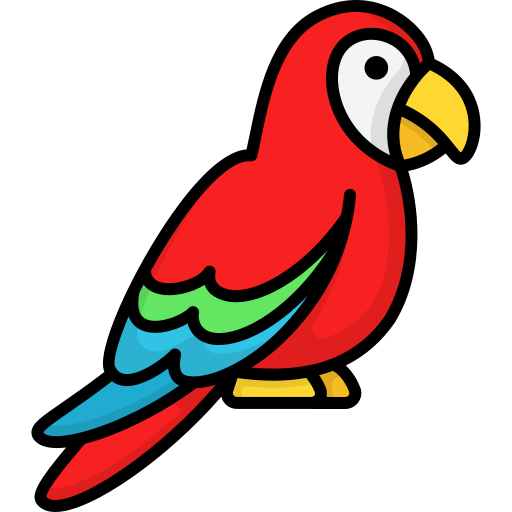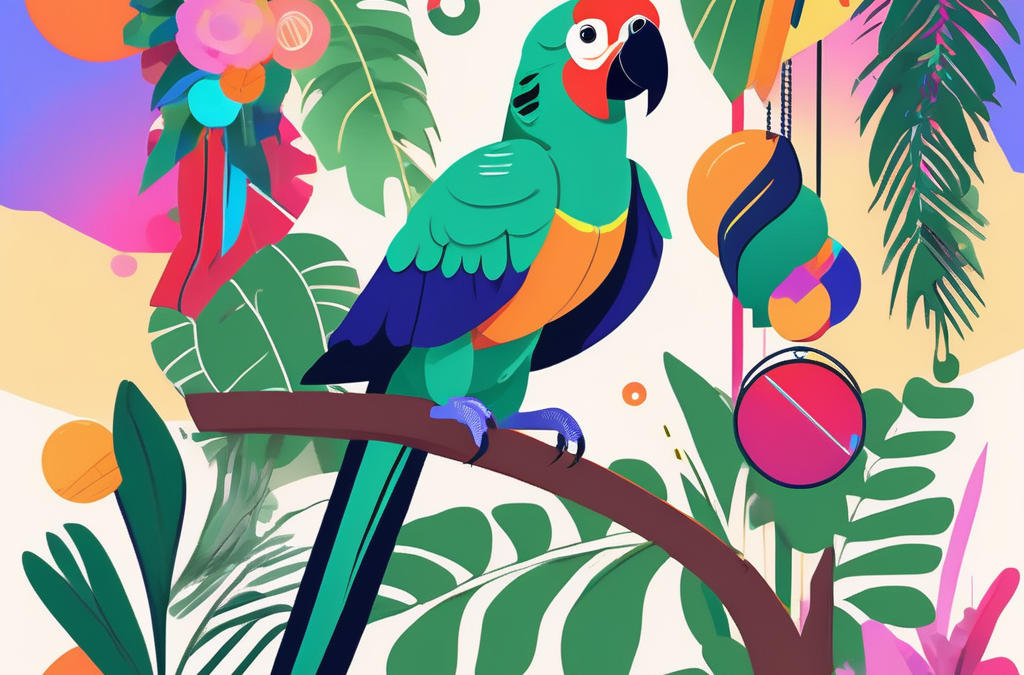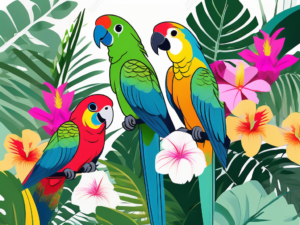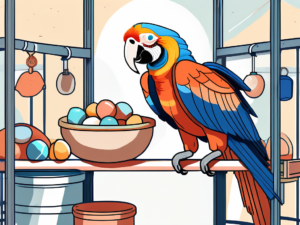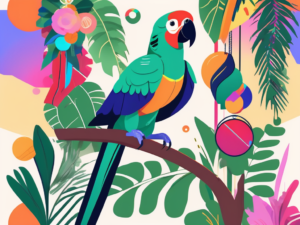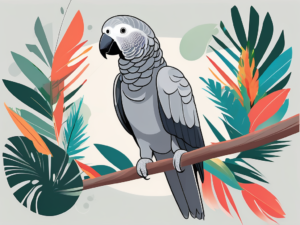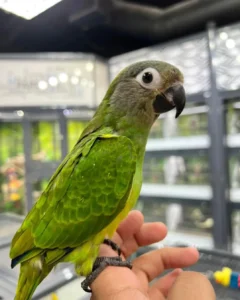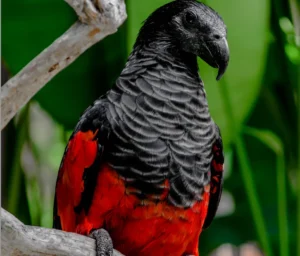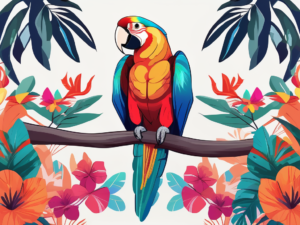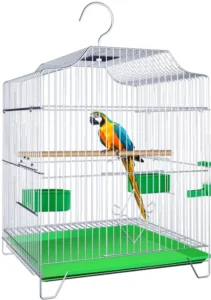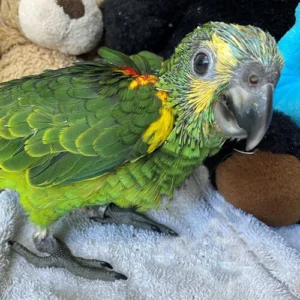Discover the key factors to consider before bringing a feathered friend into your home! Our guide on adopting a parrot offers essential tips on choosing the right species, understanding their needs, and ensuring a happy, healthy environment for your new companion..
Adopting a parrot can be a rewarding experience, but it also requires thorough consideration and understanding of these complex and intelligent creatures. In this article, we’ll explore the essential factors to take into account before bringing a parrot into your home. From understanding various species and their unique needs to preparing your home for a new feathered friend, this guide will help ensure both you and your parrot thrive in your new relationship.
Understanding Parrot Species and Their Unique Needs
When considering a parrot, one of the most important aspects to understand is that not all parrot species are the same. Each species has its own needs, behaviors, and characteristics that make them unique. Familiarizing yourself with these differences can help you make an informed decision.
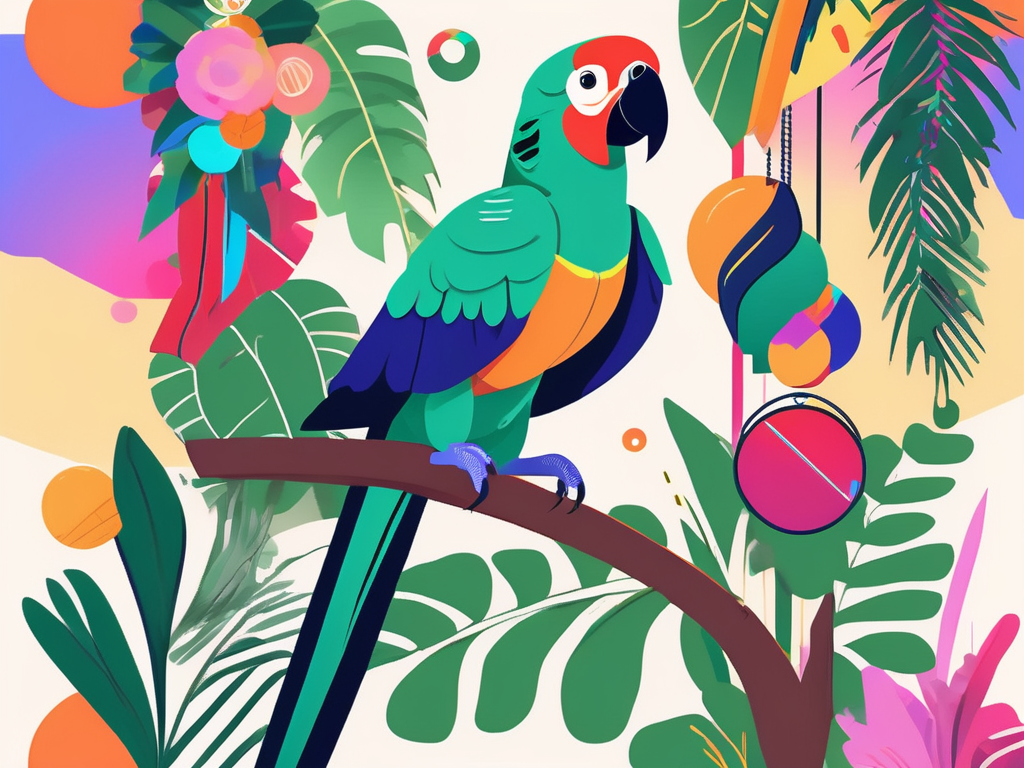
The Lifespan of Different Parrot Species
One of the first factors to consider is lifespan. Parrots are known for their longevity, and their lifespan can vary dramatically between species. Some smaller parrots, like budgerigars, may live for about 5 to 10 years, while larger species like macaws can live upwards of 50 years or more. This long-term commitment means it’s essential to choose a species that will fit into your life for the long haul. Additionally, the lifespan of a parrot can be influenced by factors such as diet, environment, and healthcare. Regular veterinary check-ups and a stable, enriching environment can significantly enhance their quality of life and longevity, making it vital for prospective parrot owners to consider these aspects carefully.
Behavioral Traits Across Parrot Species
Behavior varies not only among species but also among individual birds. Some parrots are social and enjoy being around people, while others may prefer solitude. For example, African Grey Parrots are known for their high intelligence and vocal abilities, making them interactive companions. In contrast, Cockatoos tend to be more demanding of attention and may suffer from separation anxiety if left alone for too long. Understanding these behavioral traits is crucial for creating a suitable living environment. For instance, providing toys that stimulate mental engagement and social interaction can help mitigate behavioral issues such as feather plucking or excessive screaming, which are common in parrots that feel neglected or bored.
Dietary Requirements for Parrots
Parrots have specific dietary needs that can vary by species. A balanced diet generally includes a variety of fruits, vegetables, seeds, and pellets designed specifically for parrots. It’s crucial to research the requirements of the particular species you’re interested in, as some may have specific nutritional needs that differ from others. Neglecting these dietary requirements can lead to health issues down the road. For example, some species may require higher levels of calcium or specific vitamins, while others might thrive on a more seed-based diet. Additionally, offering fresh, organic produce can provide essential nutrients and enrich their diet, while also allowing for the exploration of different textures and flavors, which can be particularly stimulating for their curious nature.
Assessing Your Lifestyle: Are You Ready for a Parrot?
Before making the decision to adopt a parrot, you should evaluate your lifestyle and ensure that it aligns with the needs of a parrot. Owning a parrot is a significant commitment that requires time, space, and financial resources.
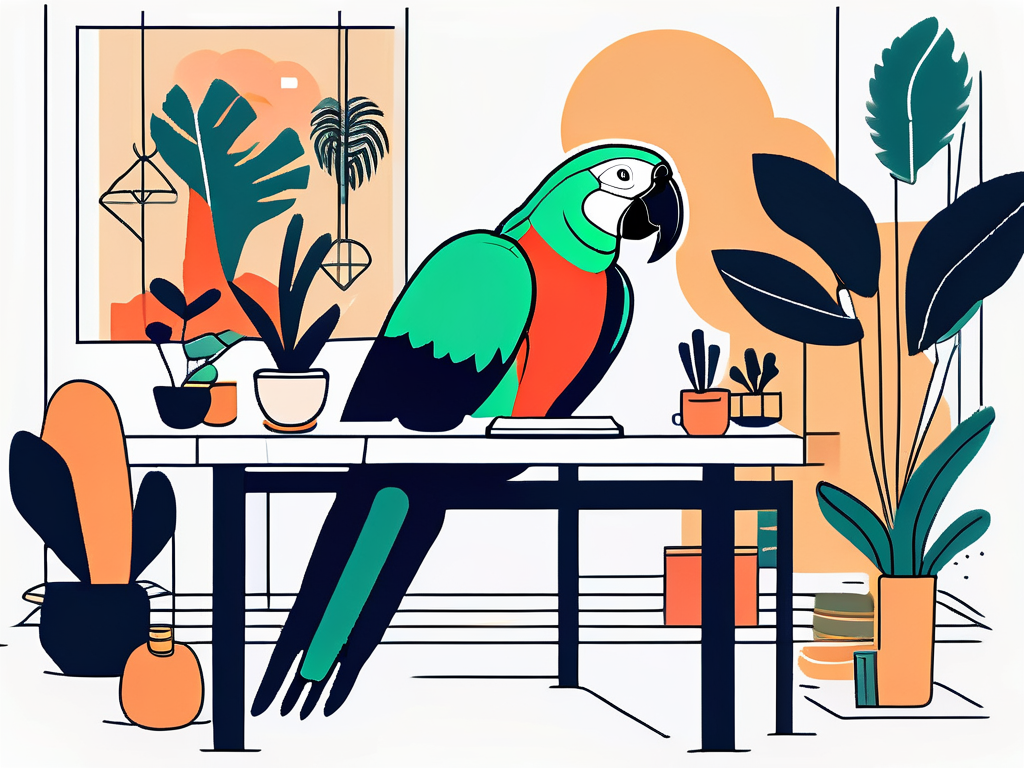
Time Commitment for Parrot Care
Parrots are highly social and intelligent animals that require a lot of interaction and mental stimulation. Daily care often involves not just feeding but also social interaction, training, and playtime. Depending on the species, you may need to dedicate several hours each day to ensure that your parrot is happy and healthy. Consider whether you can realistically meet these time commitments in your daily life. In addition to regular playtime, engaging your parrot with toys and puzzles can help prevent boredom and encourage natural behaviors. It’s also important to remember that some parrots can develop behavioral issues if they feel neglected, so consistent interaction is key to a harmonious relationship.
Space Requirements for a Healthy Parrot
The space you provide for your parrot is crucial. Larger parrots require bigger cages with ample space for flying and playing, while smaller species can often thrive in smaller enclosures. However, regardless of size, all parrots need room to move about, explore, and have a safe area to interact with their owners. Assess your living situation to ensure you can provide an appropriate habitat. Additionally, consider that parrots are naturally curious creatures that thrive on exploration. Creating a safe, designated play area outside of their cage can enrich their environment and allow them to exercise their wings and minds. Incorporating perches, climbing structures, and safe toys can transform your living space into a parrot-friendly haven.
The Financial Aspect of Parrot Ownership
Finally, consider the financial implications of parrot ownership. Initial costs can include the purchase or adoption fee, cage, food, toys, and veterinary care. Additionally, recurring costs like food replenishment, toy replacements, and routine vet check-ups should be budgeted for. Owning a parrot can become a significant financial commitment over the years, so it’s essential to be prepared. Beyond the basics, you may also want to invest in high-quality, species-appropriate food and supplements to ensure your parrot’s optimal health. Furthermore, unexpected veterinary expenses can arise, particularly if your parrot develops health issues or requires emergency care, so having a financial cushion for these situations is highly advisable. Understanding the long-term financial responsibilities can help ensure that you are fully prepared for the journey of parrot ownership.
Choosing the Right Parrot for You
Once you have a clearer picture of your readiness to adopt a parrot, the next step is choosing the right species that aligns with your lifestyle and preferences.
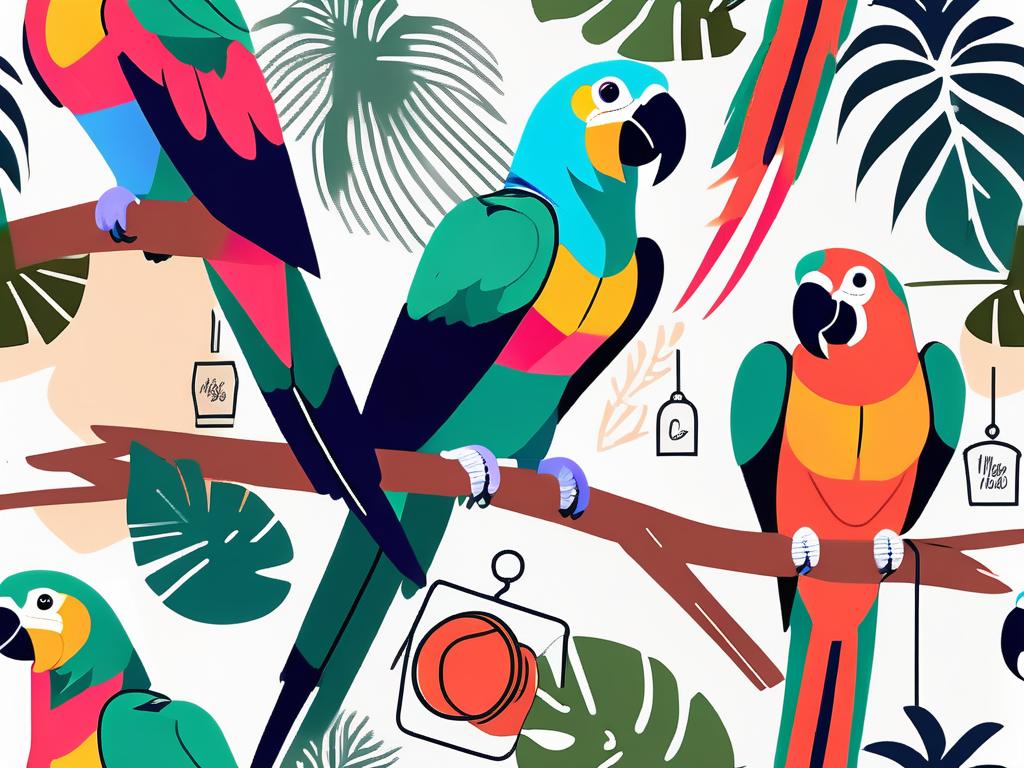
Factors to Consider When Choosing a Parrot
When selecting a parrot, think about various factors such as size, personality, and compatibility with your family or other pets. Each species comes with its own unique set of characteristics that can influence how well it fits into your life. Spend time observing different breeds and talking to owners to gather insights on what may work best for you. For instance, larger parrots like macaws and cockatoos often require more space and social interaction, while smaller species like budgerigars or lovebirds might be more suitable for those with limited living space or first-time bird owners. Additionally, consider the noise level; some parrots are known for their vocalizations, which can be delightful for some but overwhelming for others.
Where to Adopt or Buy a Parrot
Deciding where to adopt or purchase a parrot is equally important. Consider animal shelters, rescue organizations, or reputable breeders. Rescued parrots often come with a backstory that may shed light on their unique needs and personalities. Many parrots in shelters are looking for a second chance at a loving home, and adopting one can be incredibly rewarding. Whichever route you take, be diligent in ensuring that the source is responsible and ethical. Research local rescues and breeders, and don’t hesitate to ask questions about their practices and the birds’ living conditions. A responsible source will be transparent about the bird’s history, health, and temperament, helping you make an informed choice.
The Importance of Health Checks for Parrots
Before bringing a parrot home, ensure that it has undergone a thorough health check. Healthy birds are generally active, alert, and free of behavioral issues. Ask for veterinary records and make sure you’re prepared to maintain regular vet check-ups in the future to keep your feathered friend in optimal health. It’s also wise to familiarize yourself with common avian diseases and signs of illness. As early detection can make a significant difference in treatment outcomes. Additionally, consider the bird’s diet and nutritional needs; a well-balanced diet is crucial for a parrot’s overall well-being. Research the specific dietary requirements of the species you are interested in, and be ready to provide a variety of fresh fruits, vegetables, and high-quality pellets to ensure a healthy lifestyle.
Preparing Your Home for a Parrot
Once you’ve chosen the right parrot for you, it’s important to prepare your home to create a safe and inviting environment for your new companion.
Essential Parrot Supplies
Before your new parrot arrives, gather all necessary supplies. Essential items include a spacious cage, food and water dishes, a variety of toys for stimulation, and perches of varying sizes and materials. Consider adding an appropriate diet of pellets, fruits, and vegetables to meet nutritional needs. Preparing in advance ensures a smooth transition for your new pet.
Creating a Safe and Stimulating Environment
Parrots are curious creatures that thrive in stimulating environments. Make sure to bird-proof your home by removing hazards such as toxic plants, open windows, and small objects that could be swallowed. Create an enriching space that allows your parrot to explore safely, perhaps with various toys to keep them occupied.
Introducing Your Parrot to Other Pets
If you have other pets, introducing them to your new parrot requires caution. Supervised introductions are essential to ensure the safety of all animals involved. Take your time during this adjustment phase, and provide a safe, separate area for your parrot until they are more comfortable and accustomed to their new environment.
In conclusion, adopting a parrot is a lifelong commitment that requires careful thought and preparation. By understanding different species, assessing your lifestyle, making informed choices, and preparing your home. You can create a loving and supportive environment for both you and your new feathered friend.
